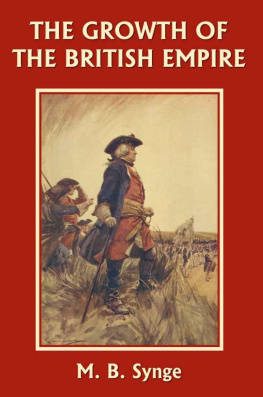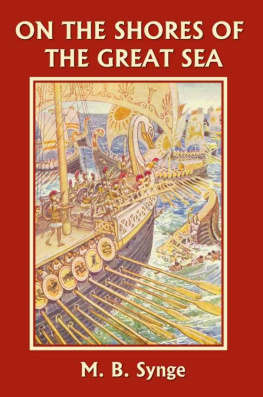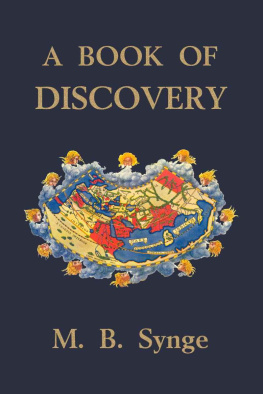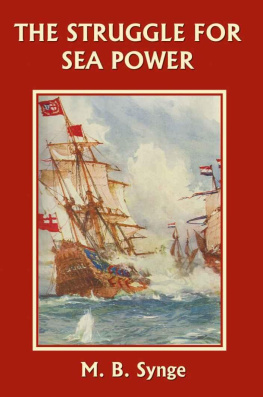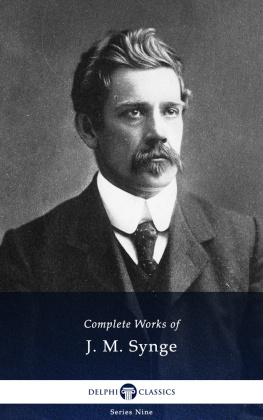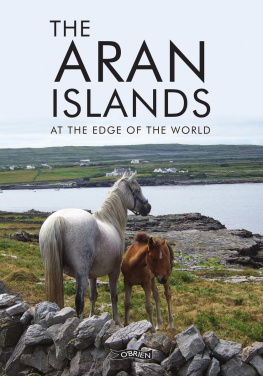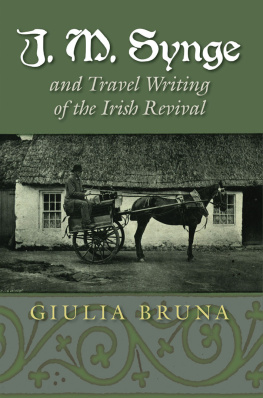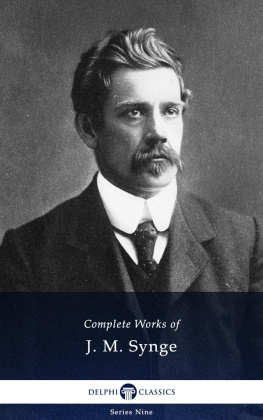M. B. Synge - The Story of the World 3 The Awakening of Europe
Here you can read online M. B. Synge - The Story of the World 3 The Awakening of Europe full text of the book (entire story) in english for free. Download pdf and epub, get meaning, cover and reviews about this ebook. year: 2006, publisher: Yesterdays Classics, genre: History. Description of the work, (preface) as well as reviews are available. Best literature library LitArk.com created for fans of good reading and offers a wide selection of genres:
Romance novel
Science fiction
Adventure
Detective
Science
History
Home and family
Prose
Art
Politics
Computer
Non-fiction
Religion
Business
Children
Humor
Choose a favorite category and find really read worthwhile books. Enjoy immersion in the world of imagination, feel the emotions of the characters or learn something new for yourself, make an fascinating discovery.
The Story of the World 3 The Awakening of Europe: summary, description and annotation
We offer to read an annotation, description, summary or preface (depends on what the author of the book "The Story of the World 3 The Awakening of Europe" wrote himself). If you haven't found the necessary information about the book — write in the comments, we will try to find it.
The Story of the World 3 The Awakening of Europe — read online for free the complete book (whole text) full work
Below is the text of the book, divided by pages. System saving the place of the last page read, allows you to conveniently read the book "The Story of the World 3 The Awakening of Europe" online for free, without having to search again every time where you left off. Put a bookmark, and you can go to the page where you finished reading at any time.
Font size:
Interval:
Bookmark:
All rights reserved. No part of this book may be reproduced or retransmitted in any form or by any means without the written permission of the publisher.
This edition, first published in 2010 by Yesterday's Classics, an imprint of Yesterday's Classics, LLC, is an unabridged republication of the work originally published by William Blackwood and Sons in 1903. This title is available in a print edition (ISBN 978-1-59915-015-4).
Yesterday's Classics republishes classic books for children from the golden age of children's literature, the era from 1880 to 1920. Many of our titles are offered in high-quality paperback editions, with text cast in modern easy-to-read type for today's readers. The illustrations from the original volumes are included except in those few cases where the quality of the original images is too low to make their reproduction feasible. Unless specified otherwise, color illustrations in the original volumes are rendered in black and white in our print editions.
"God made the sea, but the Hollander made the land."
O LD D UTCH P ROVERB .
F AR away, in the north-west corner of Europe, lie the Netherlands, the lands which are now to play a large part in the world's history. The Low Countries they were called by the men of old time; and with good reason too, for many parts were actually below the level of the sea. Spongy and marshy, bleak and cold, was this corner of the European continent in the olden days.
Winds and waves had wrought sad havoc with the coast. The rough North Sea was ever encroaching on the low-lying land, breaking over the shores with its never-ceasing roar and tumble, and flooding the country below its level whenever the wild west wind blew it home. Not only had the people of this country to contend with wind and wave, but from the other side many great rivers rolled through the land, to empty their waters into the North Sea, overflowing their low banks and flooding the surrounding neighbourhood.
The largest of these was the Rhine. Rising amid the snowy Alps, leaping joyously over the famous falls of Schaffhausen, flowing in majesty right through Germany, the Rhine at last reached the Netherlands. The mouth of this famous river gave some trouble to the Hollanders. They made colossal pumps and locks, by which they lifted the water and lowered it into the sea. There was no rest for a lazy river in these parts. The stream must be kept moving, it must do its share of work in the country.
"As long as grass grows and water runs." This was their idea of For ever.
"I struggle but I emerge."
This was the motto of Zeeland, with the crest of a lion riding out of the waves, and it sums up the story of the people of the Netherlands. For hundreds of years they fought the angry waters with a stubborn determination, a patient energy, a dauntless genius,an example to other countries.
They erected great mounds or dykes to keep out the North Sea; they dug canals to direct course of their sluggish rivers and to keep them within bounds. And when the ocean tides were high or the winds blew long from the west; when the heavy snows from the mountains melted, or the rainfall was unusually great, so that the dykes were broken down and the waters rushed in boundless masses over their land, yet the Hollander would not give up. With dogged perseverance he began again, so that to-day such an inundation is impossible.
"God made the sea, but we made the land," they can say to-day with pride. But even to-day these great dykes which keep out the sea have to be watched. Every little hole has to be carefully stopped up or the sea would rush in and devour the land once more. Every man, woman, and child in the country knows the importance of this.
A little Dutch boy was returning from school in the late afternoon, with his bag of books hanging over his shoulder, when he thought he heard the sound of running water. He stood still and listened. Like all other little boys in the Netherlands, he knew that the least crack in a dyke would soon let in the water, that it would cover the land and bring ruin to the people. He ran to the mound and looked about. There he saw a small hole, through which the water had already begun to trickle. He was some way from his home yet. Suppose he were to run on fast and tell some one to come. It might already be too latethe water might even then be rushing over the land. He stooped down on the cold damp ground and put his fat little hand into the hole where the water was running out. It was just big enough to stop up the hole and prevent the water from escaping any more.

THE LITTLE DUTCH BOY AND THE DYKE
His mind was made up; he must stop there till some one came to relieve him. He grew cold and hungry, but no one passed that lonely way. The sun set, the night grew dark, and the cold winds began to blow. Still the little boy kept his hand in the hole. Hour after hour passed away, and he grew more and more cold and frightened as the night advanced. At last he saw little streaks of light across the sky; the dawn was coming. By-and-by the sun rose, and the boy knew his long lonely watch must soon be over. He was right. Some workmen going early to work found him crouched on the ground with his little cold hand still thrust into the hole. But the large tears were on his cheeks, and his piteous cries showed how hard he had found it to keep faithful all through the long dark night. The boy was at once set free and the hole was mended. And so it depends on each man to watch the dykes, though there are now bands of watchers appointed by the State for this purpose.
So these people have, as the poet says, "scooped out an empire" for themselves, and kept it by their never-ceasing vigilance and industry.
"Brave men are brave from the very first."
C ORNEILLE.
I T will be interesting to trace the history of these resolute people, who reclaimed their land from the angry North Sea and built busy cities which should play a large part in the history of the world.
The earliest chapter in the history of the Netherlands was written by their conqueror, Julius Csar. Why he cast covetous eyes towards these swampy lowlands is hard to see, but he must needs conquer them, and he thought he should have an easy task. At least one tribe wrung from him admiration by its rare courage. When others were begging for mercy, these people swore to die rather than to surrender. At the head of ten Roman legions Csar advanced to the banks of one of the many rivers of this low country. But hardly had the Roman horsemen crossed the stream, when down rushed a party of Netherlanders from the summit of a wooded hill and overthrew horses and riders in the stream. For a moment it seemed as if this wild lowland tribe was going to conquer the disciplined forces of Rome. Snatching a shield, the world's conqueror plunged into the hottest of the fight and soon turned the tide. The battle was lost, but, true to their vow, the wild Netherlanders refused to surrender. They fought on till the ground was heaped with their deadfought till they had perished almost to a man. Csar could respect such courage, and when he left the country, to be governed by Romans, he took back soldiers from the Netherlanders to form his imperial guard in Rome.
Font size:
Interval:
Bookmark:
Similar books «The Story of the World 3 The Awakening of Europe»
Look at similar books to The Story of the World 3 The Awakening of Europe. We have selected literature similar in name and meaning in the hope of providing readers with more options to find new, interesting, not yet read works.
Discussion, reviews of the book The Story of the World 3 The Awakening of Europe and just readers' own opinions. Leave your comments, write what you think about the work, its meaning or the main characters. Specify what exactly you liked and what you didn't like, and why you think so.


